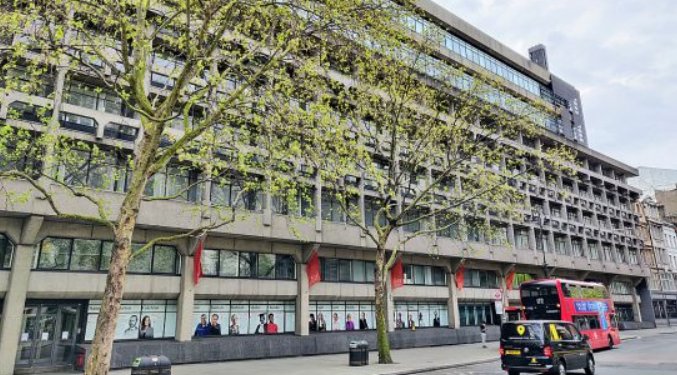by Rhoda Wilson, Expose News:

A former civil servant, Anna Stanley reports on a counter-terrorism course she attended which she found a deeply, existentially depressing experience. She argues that ‘prestigious’ educational institutions are delivering politically biased, anti-Government training, amounting to indoctrination and that extremism and terrorism are misunderstood by civil servants to the point of being a national security risk.
I recently attended a Kings College course called ‘Issues in Countering Terrorism’. Organised by the Centre for Defence Studies, it was designed for civil servants and professionals in counter-terrorism. Staff from the Foreign Office, Ministry of Justice, Ministry of Defence and Home Office attended. Facilitating this relatively new three-day course were senior lecturers from the Security Studies Department.
TRUTH LIVES on at https://sgtreport.tv/
The civil servants were given presentations by Kings College lecturers while Visiting Senior Research Fellows and Professors also spoke. These included those formerly holding positions such as Permanent Secretary of the Home Office and Director of GCHQ, Defence Minister and Foreign Office Director.
The course was a deeply, existentially depressing experience.
‘Prestigious’ educational institutions are delivering politically biased, anti-Government training, amounting to indoctrination. It confirmed my fears – that extremism and terrorism are misunderstood by civil servants to the point of being a national security risk.
Underpinning their presentations, some of the lecturers relayed typical post-modern identity politics.
The course began with the issue of definitions. What is terrorism? Without anyone providing an opposing standpoint, we were taught the adage, “One man’s freedom fighter is another man’s terrorist.”
I posed to the room: “Surely we can acknowledge subjectivity while being able to come up with a collective understanding of what terrorism is?” Some 40 civil servants looked at me blankly. No?
I wondered why we were there.
The danger of understanding terrorism with cultural relativism is that it breeds moral apathy; the kind that says, “Who are we, mere democratic, liberal Westerners to impose our morality onto others? Who are we to say our culture is superior to others?”
These are luxury attitudes. It is easy to be sat in Kings College London and feel that all cultures are equal, when you haven’t been anally raped at a peace festival by someone shouting “Allahu Akbar” and held hostage. In the introduction to the course, labelling an organisation as terrorist was described as a problem because it “implies a moral judgement”. Nothing was said about why a moral judgement might be appropriate.
All the civil servant participants were given a topic to research and present. One attendee said her brother had been radicalised and fought in Syria for Islamic State (ISIS). Phew, I thought. At least one person here will understand the problems of extremism. Her presentation was about the U.K.’s Counter Terrorism Strategy, Prevent. She argued Prevent is inherently racist because it focuses on Islamist extremism. The mere mention of Islamist extremism makes Muslims “feel uncomfortable”, she argued. Her brother would most certainly have agreed.
I raised the point that nearly 70% of terrorist attacks in the U.K. are Islamist. Similarly, 70% of lung cancer cases are caused by smoking. It would be absurd to avoid mentioning this in the study of cancer so smokers don’t feel uncomfortable. Unsurprisingly, this comparison was not well received.
Later on, we were shown an ISIS propaganda recruitment video filmed in Syria. The same attendee’s face lit up. Laughing and pointing at the jihadi in the video, “He used to go to my school! I know him!” she exclaimed. Mouth agape, I looked around the room for responses to yet another disclosure involving personal links to ISIS terrorists. I appeared to be the only one to find this extraordinary.
There was an irony to being surrounded by civil servants who hate the concept of the state. As young professionals, they represented a microcosm of the views emanating from British universities: when it comes to extremism and counter terrorism, the state is not to be trusted.
The Head of Security Studies at Kings College read concernedly, “Problems of Definitions: Labelling a group terrorist can increase the state’s power”. The civil servants nodded in agreement.
The visiting speakers were political heavyweights. Possessing genuine expertise with interesting anecdotes, their past responses to crises like the Northern Ireland Troubles were referenced frequently. Yet I couldn’t help but feel many of their insights were lost by the audience.



